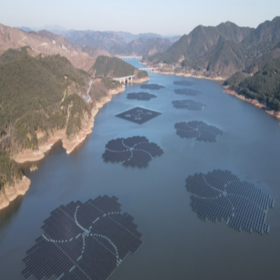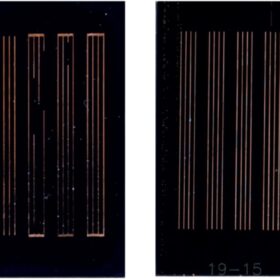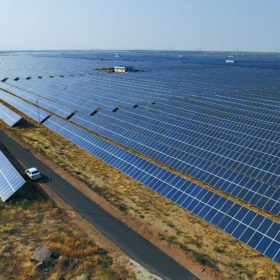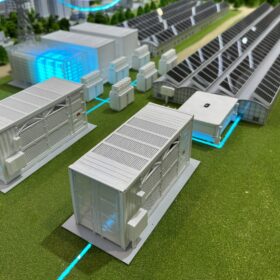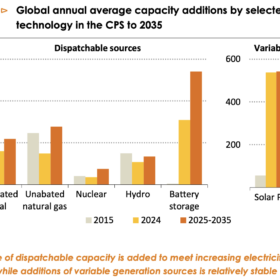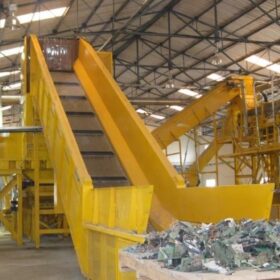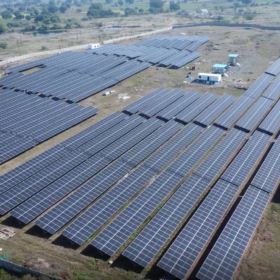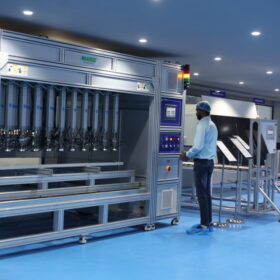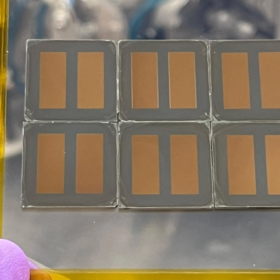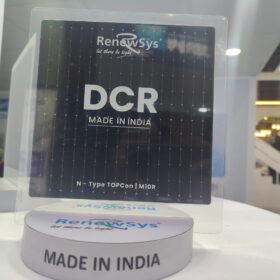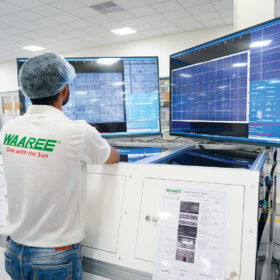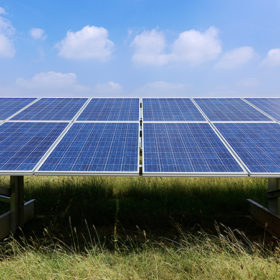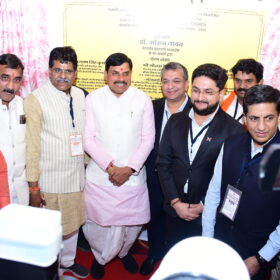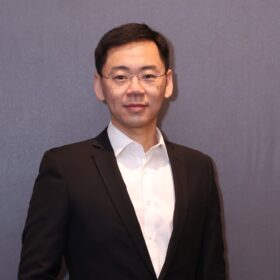South Korea switches on 47.2 MW floating PV project
The Ihma Dam solar project is South Korea’s largest floating PV array located alongside a multi-purpose dam. The project features a resident-participation model allowing those living within a one kilometer radius to share profits from its power supply.
Fraunhofer ISE builds first perovskite-silicon tandem solar cell with copper metallization
Using the mask-and-plate copper metallization technique, scientists at the German research center fabricated a 1.21 cm² perovskite–silicon tandem solar cell featuring a heterojunction bottom device. The cell achieved an efficiency of 19.35%, reportedly the highest value reached to date for this cell type using galvanic front metallization.
What can South Korea learn from India’s rapid solar deployment?
Korean policy analyst focusing on solar power plant siting and permitting, Daun Kim, has reported on her recent trip to India’s Bhadla Solar Park. The analyst highlights how clear siting policies and streamlined permitting helped India scale renewables, something that South Korea can learn as it pursues a 100 GW renewable energy target by 2030.
Three emerging structures for solar-plus-storage PPAs
The PPA price for pure photovoltaic projects has fallen by 20% over the past year, making such contracts less competitive. However, clear structures for bankable hybrid PPAs are now beginning to take shape, says Pieter van der Meulen, Senior Account Manager at LevelTen Energy, in an interview with pv magazine.
IEA warns global solar growth may plateau at 540 GW annually to 2035
The International Energy Agency (IEA) said global solar capacity additions are projected to average 540 GW a year through 2035, as outlined in its World Energy Outlook 2025 report.
From waste to resource: Recovering critical minerals for solar and EV batteries
As India ramps up solar installations and EV deployments, the volume of end-of-life components will grow rapidly. If these are treated simply as waste, we create new environmental burdens and miss a chance to recover value. If, instead, they are viewed as sources of supply, they become part of the solution.
Bondada Engineering commissions 56.9 MW solar projects in Maharashtra
With the latest additions, the company’s cumulative commissioned capacity crosses the 1 GW milestone.
Waaree Energies secures 360 MW solar module order
Waaree Energies has won an order for supply of 360 MW solar modules from a domestic developer and owner-operator of utility scale solar and energy storage projects.
NTU achieves high stability in 25.1%-efficient inverted perovskite solar cell
Researchers at Nanyang Technological University have demonstrated a method to integrate chemically inert low-dimensional interface materials into the fabrication of inverted perovskite solar cells. Their prototype solar cells retained over 93% of the initial power conversion efficiency of 25.1% after 1,000 hours of operation, and 98% after 1,100 hours at 85 C.
RenewSys launches DCR TOPCon solar cells at REI 2025
RenewSys India unveiled its M10R n-type TOPCon solar cells at the Renewable Energy India (REI) Expo 2025 in Greater Noida.
